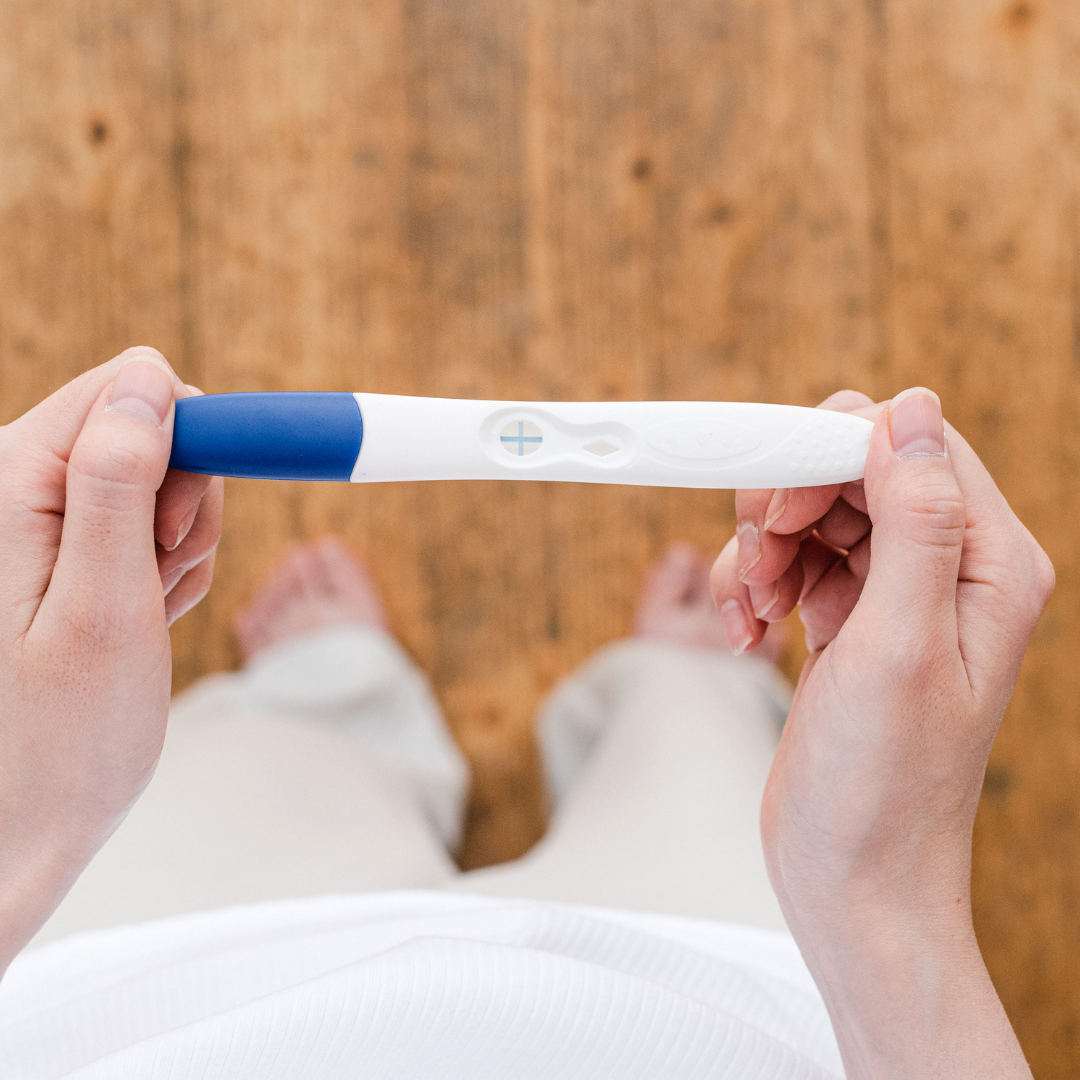Infertility Support
Infertility is a fairly common but serious issue that can take an emotional and physical toll on people who hope to have children.
Mt. Shuksan Family Medicine in Bellingham can help you through this difficult time by offering local infertility evaluations and support services.
How to Get an Infertility Evaluation
Mt. Shuksan Family Medicine in Bellingham offers infertility evaluations and support services for men and women seeking to start families. Our team is dedicated to helping patients who are hoping to become pregnant and those who have had difficulty conceiving.
Our Women’s Health Nurse Practitioner, Michele Ingram, has more than 30 years of experience in women’s healthcare and holds a reproductive endocrinology certification specializing in infertility.
Contact us at (360) 647-1900 to schedule an appointment.

What is Infertility?
Infertility means a couple isn't able to become pregnant after 1 year of having regular, unprotected sex. Infertility can affect both women and men. A woman is considered infertile if she has tried for 1 year to get pregnant and hasn't used birth control (6 months for women 35+).
A man is considered infertile if he has too few sperm or his sperm are too unhealthy to combine with a woman's egg.
Symptoms of Infertility
The main symptom of infertility is not being able to get pregnant.
There may be no other symptoms.
Sometimes women can have problems relating to their periods such as pain or abnormal bleeding. Some men can have problems with erectile dysfunction.
However, most couples will have no other symptoms other than not getting pregnant.

Causes of Infertility
Getting pregnant is complex. Multiple things have to go right for both the man and the woman. Therefore, there are many causes of infertility that make it difficult to get pregnant.
The best way to pinpoint the potential cause of your infertility is to get an evaluation.
That said, infertility is a complex issue, and understanding the most common causes could improve your chances of having a healthy pregnancy.
-
Problems with ovulation
This is the process by which the egg leaves the ovary and travels to meet the sperm. Some women don't ovulate every month.
-
Problems with reproductive system
Problems with your reproductive system, including your fallopian tubes, cervix, uterus, or ovaries. This might include a blockage, growths, scarring, enlarged ovaries, or an abnormal opening of the cervix.
-
Early-onset menopause
This would occur before the age of 40. It may be tied to an immune system disease, cancer treatments, or a genetic syndrome.
-
Diseases and disorders
Diseases and disorders, including endometriosis, pelvic inflammatory disease, cancer, diabetes, autoimmune diseases (when your body attacks itself), lupus, and celiac disease.
-
Delayed puberty or absence of a period
-
Smoking and substance abuse
Smoking cigarettes can damage the ovaries and reduce the chances of conceiving. Smoking also reduces the chances of carrying a pregnancy to term, as well as increasing the risk of miscarriage.
-
Being overweight or underweight
Being overweight can affect your fertility because it's linked to increased estrogen levels and reduced progesterone production (a hormone needed for ovulation).
Being underweight can signify other health issues affecting fertility, such as low body fat or eating disorders like anorexia nervosa or bulimia nervosa. -
Age
After age 35, it gets harder for a woman to get pregnant.
-
Unhealthy or poorly functioning sperm
This includes the quality of the man's sperm as well as how quickly they move.
-
Bacterial infection
This can be an infection inside the man's testicles. It can also be a sexually transmitted infection.
-
A varicocele
This is an enlargement of the veins inside the loose skin that surrounds a man's testicles. It can cause low sperm count.
-
Retrograde ejaculation
This means a man's sperm goes into his bladder rather than outside the penis.
-
Undescended testicles
One or both of a man's testicles remain in his abdomen. Testicles are supposed to drop down from the abdomen into the scrotal sac at birth.
-
Smoking and substance abuse
Smoking reduces fertility by affecting ovulation and reducing blood flow to the reproductive organs, both of which are required for conception. Alcohol can lower sperm count in men. Men may have trouble getting or keeping an erection.
-
Sexual dysfunction
This can include erectile dysfunction or problems ejaculating too soon or not at all.
-
Overheating the testicles
This can occur by wearing underwear or pants that are too tight. It can also happen by using a hot tub for extended periods.
How is Infertility Diagnosed?
For both men and women, your doctor will conduct a medical exam. They will ask you questions about your general health and how long you've been trying to get pregnant. While your doctor will decide what additional testing is necessary, it will likely begin with blood tests.
These will check hormone levels and genetics (for both men and women) and egg quality. Women may have additional tests.
-
Transvaginal Ultrasound
A medical technician will insert a small wand, covered with latex, into your vagina. The wand is connected to a screen, where the technician can view images of the inside of your uterus,and fallopian tubes. The technician will send the images to your doctor to review.
-
Hysterosalpingogram (HSG)
This is an X-ray that involves injecting dye into your uterus to look for blockages inside your fallopian tubes. It doesn't require anesthesia.
-
Pelvic Laparoscopy
This surgical procedure is performed in a hospital. A thin, flexible scope is inserted into your abdomen to give your doctor a better look at your uterus and fallopian tubes. It helps look for polyps, growths, and blockages.
.png?width=810&height=810&name=infertility%20treatments%20(1).png)
-
Semen Sample
For men, the first test will be to collect a sample of semen (the fluid that is ejaculated from the penis). This is used to examine his sperm count, quality, and movement.
-
Physical Exam
Men may undergo further physical exams, which would look for:
- Past injury to his testicles or penis
- Discharge, a fluid that shouldn't be in the man's penis
- A swollen or enlarged prostate
- A varicocele
- Recent high fevers
- A history of mumps
.png?width=810&height=810&name=infertility%20treatments%20(2).png)
Infertility Treatment Options
Infertility treatment is based on the cause of your infertility. For women, treatment may include medicine or surgery. The most common medicines used to treat female infertility stimulate the ovaries. This helps the ovaries produce more eggs and increases the chances of getting pregnant. Surgery can be done if there are blockages or problems with the fallopian tubes, surgery also is used to remove areas of endometriosis, fibroids, polyps, or scarring, which all can affect fertility.
Men can be treated with medicine and surgery. If they have erectile dysfunction or problems ejaculating, medicine may be prescribed. If they have varicoceles in the testicles or issues with blockages in the tubes that carry sperm, those can sometimes be repaired with surgery.
-
Intrauterine Insemination (IUI)
Intrauterine insemination (IUI). This procedure inserts healthy sperm into the woman's uterus around the time of ovulation. It uses a long, narrow tube to insert the sperm. It can be done in the doctor's office. During IUI, either your partner provides a semen sample or donor sperm is used. The sperm is then processed to help ensure we have the best sperm available.
The timing of your IUI depends on your follicle growth. When monitoring shows that your ovarian follicles have grown to an appropriate size, egg maturation and ovulation will be triggered and the IUI will then be completed one to two days later.
A member of your care team will use a small catheter to insert the washed sperm through your cervix into your uterus. Pregnancy testing occurs two weeks later. -
In Vitro Fertilization (IVF)
In vitro fertilization is more expensive and complex than IUI. It requires stimulating the ovaries with hormones and removing eggs from the woman. The eggs are fertilized with sperm in a laboratory. Once an embryo develops, it is placed into the woman's uterus. While they can be successful, there is no guarantee that IUI or IVF will result in a pregnancy.
-
Third-Party Assisted ART
This is when another person helps a couple get pregnant. They can help by donating sperm, donating eggs, or donating embryos. They may also serve as surrogate or gestational carrier. This means another person actually carries the baby for you.
Can Infertility Be Prevented or Avoided?
Some causes of infertility can't be prevented or avoided. But both men and women can take steps to increase their chances of pregnancy.Women should:
- Quit smoking
- Avoid alcohol and street drugs
- Exercise moderately, but not so much that it interferes with your periods
- Maintain a healthy weight
- Avoid tobacco, drugs, and excessive alcohol use
- Avoid high temperatures, such as hot tubs or saunas
- Avoid industrial or environmental toxins
- Exercise regularly
Concerned about infertility? Make an appointment today.
We understand that infertility can be a difficult subject to discuss, so we have made it a priority to provide the highest-quality care in the most private and comfortable setting possible.
Contact us at (360) 647-1900 to schedule your evaluation.
-3.png?width=819&height=336&name=Mt-Shuksan-Family-Medicine-Logo-Light-Blue%20(1)-3.png)